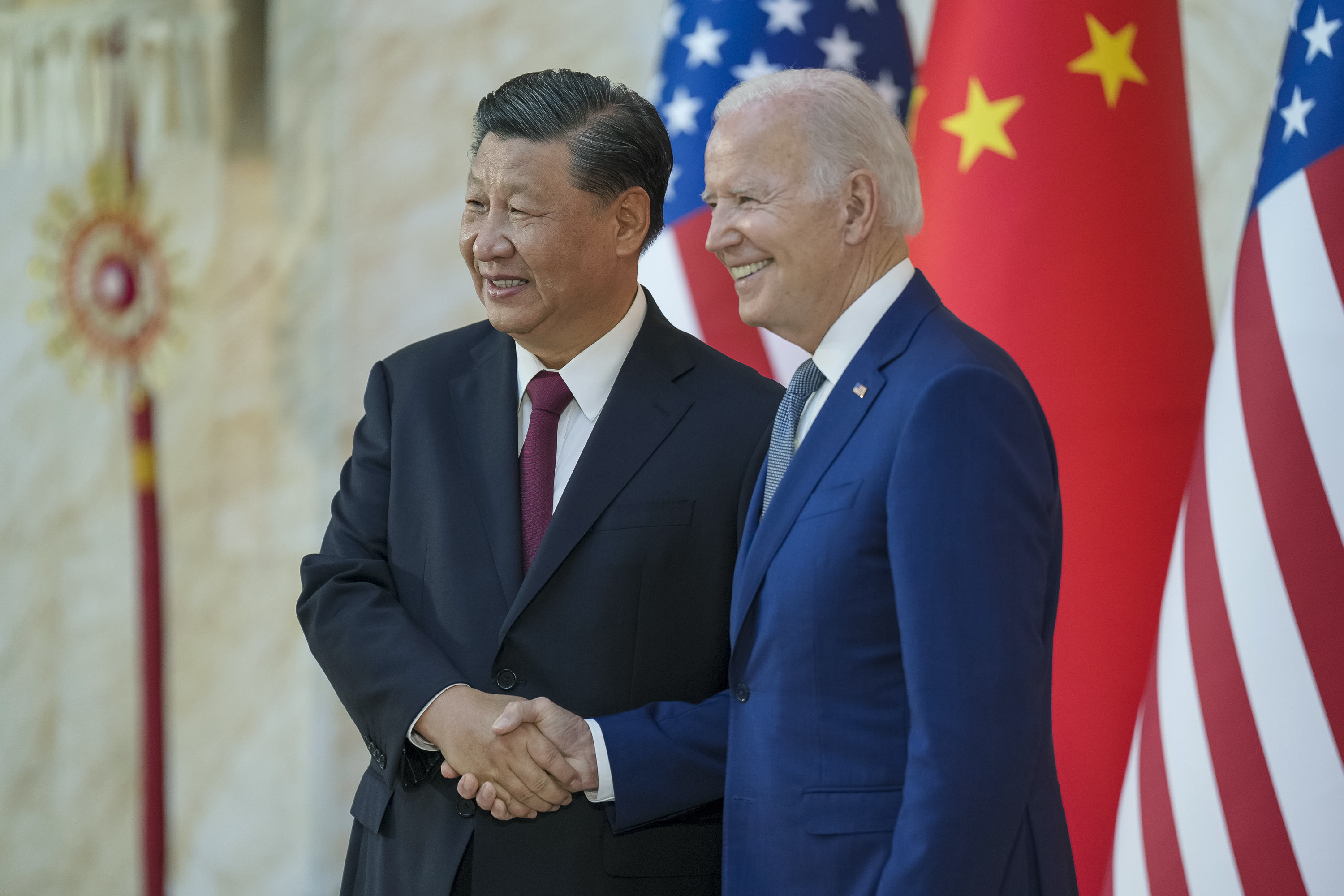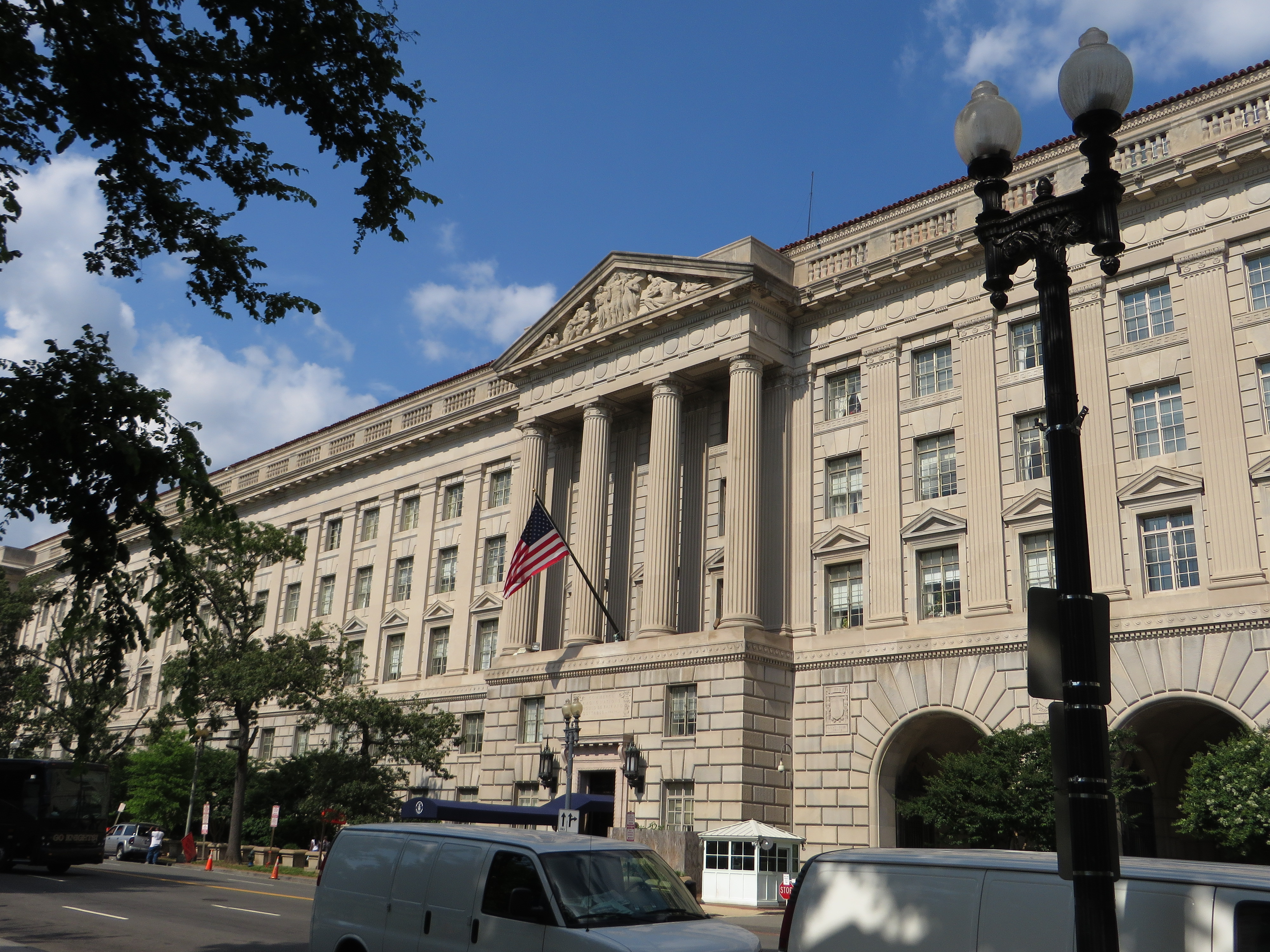Peak Economic Security? The Securitization of U.S.-China Economic Relations and Rethinking Resilience
The U.S. must better balance its coercive economic security measures with constructive policies that underscore the benefits of new and sustainable forms of interdependence.

Published by The Lawfare Institute
in Cooperation With

Editor’s Note: The U.S.-China security competition seems to be dominating bilateral economic relations, with U.S. economic pressure growing steadily. Yale’s Matthew Ferchen argues that this economic relationship is over-securitized and the United States must make clear when it will pursue interdependence with China as well as when it won’t.
Dan Byman
While the United States and China used to see economic interdependence as a pillar of stability in their relationship, they now increasingly view their trade and investment ties through the lens of economic security. That is, leaders in both countries are concerned that commercial dependencies on the other will expose them to unwanted influence or competition. Specific measures are needed to reduce those dependencies, the thinking goes, as well as to shore up their own sources of economic leverage over each other or third countries. In the U.S., leaders and policymakers have expanded, strengthened, and refined the government’s already substantial economic security toolkit. In China, meanwhile, President Xi Jinping has uprooted a decades-long prioritization of economic development and growth by instead emphasizing the overriding importance of security. This expanding focus in the U.S. and China on the risks of economic interdependence has also been mirrored by countries and businesses from Asia to Europe and beyond, most prominently via Japan’s Economic Security Promotion Act of 2022 and the EU’s Economic Security Strategy of 2023.
Yet the growing centrality of security as a feature of international economic relations is also fueling concerns about the costs of over-securitization and calls for alternative approaches to fostering economic resilience by some analysts in the U.S. and China as well as by countries caught in the middle of expanding U.S.-China economic security rivalry. In response, any coherent and long-term effort to reset and reimagine U.S. economic leadership on the world stage needs to better articulate and signal the scope and aims of America’s approach to economic security toward China. For such an effort at a new era of international economic leadership to succeed, the U.S. should demonstrate to its allies, partners, and countries in the Global South that its economic security strategy does not just rely on the use of coercive economic measures but also presents a positive vision of sustainable interdependence, one that includes China.
In the U.S., the Biden administration has maintained or doubled-down on Trump-era tariffs, export controls, investment screening, and supply chain reshoring, all with an eye toward concerns about China. For example, National Security Adviser Jake Sullivan’s April 2023 speech on “Renewing American Economic Leadership” was replete with linkages between economic and security policy. Sullivan is not alone in his pitch. Scholars and policy researchers, including some who have already helped refine and use some of America’s new economic security tools, have recently called for the creation of an “economic security state” with a smarter, more targeted use of economic statecraft to “China-proof” the international economy. Congress is also pushing for more policies in the name of winning the economic competition with China, including over 150 new proposals from the House select committee on China. Expect more such proposals in the months ahead as previous, or would-be, policy advisers jockey for attention in the buildup to the U.S. presidential election.
In China, the connection between economics and national security is not new. Beginning in the late 1970s, Deng Xiaoping and his immediate successors, including the leadership teams of Jiang Zemin and Zhu Rongji in the 1990s and Hu Jintao and Wen Jiabao in the early 2000s, argued that economic development was the essential precondition for the country’s stability and security. Yet since coming to power over a decade ago, Xi Jinping has increasingly turned this formula on its head, insisting that security is paramount to economic development. Domestically, Xi has reasserted the Chinese Communist Party’s dominant role in both state-owned firms as well as in the private sector and he has overseen reinvigorated industrial policy in the name of self-sufficiency. In foreign economic policy, Xi’s emphasis on security has been accompanied by the unabashed use of economic sticks, as well as carrots (such as the Belt and Road Initiative), to achieve leverage in foreign relations. Facing a range of domestic economic challenges, as well as an international environment replete with calls for de-risking from China, Xi and the party leadership will continue to prioritize economic security.
Despite the turn toward economic security as a dominant feature of U.S.-China relations, there is growing pushback in the U.S., coming from at least three directions. The first comes from some of the keenest analysts of “weaponized interdependence” themselves, who worry that in undisciplined and unprincipled hands, America’s expanding array of coercive economic tools may undermine the country’s influence and affluence. Yet others argue that America’s growing focus on economic security ignores the benefits of economic interdependence, leads to rent-seeking protectionism, and puts too much power over economic decision-making in the hands of security officials. The third, and most important, worries come from security experts themselves, who warn that by dismantling U.S.-China economic interdependence, including via Asian supply chains, U.S. and Chinese overenthusiasm for limiting mutual dependencies may ultimately erode the foundation of long-standing peace and security in Asia.
While calls for restraint of America’s weaponization of trade, commerce, and finance are not mainstream in the U.S., critiques of China’s own efforts to view economic policy through a security lens are more widespread, at least outside China. In foreign policy, criticism of China’s use of “economic coercion” has been on the rise in the U.S. and Group of Seven countries in recent years. Experts on China’s economy have also pointed to the costs, inefficiencies, and self-defeating outcomes associated with Xi’s all-encompassing emphasis on security.
Maybe more surprising than such critiques coming from outside China are emergent, if cautious, concerns about “over-securitization” coming from inside China. As in the U.S., many in China are calling for more expansive or carefully targeted policies to enhance existing efforts to shore up the country’s economic security. But there are also concerns about the excessive focus on security in economic policy. Some Chinese critics point to the U.S.-Soviet arms race in the 1980s and the collapse of the Soviet economy to emphasize that China should “avoid falling into the trap of over-securitization.” Yet others highlight concerns that China’s own preoccupation with security may undermine economic prosperity and social well-being, arguing that an excessive focus on security may lead to a “mismatch and waste of resources, which in the long run weakens a state’s ability to secure its own critical areas and does not contribute to the achievement of security objectives.” As the Chinese economy continues to face domestic and international headwinds, following these domestic Chinese debates about reassessing and recalibrating the relationship between security and development will be crucial for understanding China’s evolving approach to economic security.
In addition to such emergent voices calling for a reevaluation of ever-expanding economic security policies in both China and the U.S., other countries are formulating their own novel approaches to economic “resilience.” For example, Japan is cooperating with the U.S. to reduce critical mineral supply dependence on China and has streamlined its approach to economic security. At the same time, Japan and other countries in Asia view greater regional economic integration that is inclusive of China as a central component of their economic security and resilience. Japan is not alone in Asia or elsewhere in viewing a reimagined form of economic interdependence that is at once wary, and also inclusive, of both China and the U.S. as central to its own well-being and security. Close Asian allies and partners of the U.S., such as Australia, South Korea, and Taiwan, are also working closely with the U.S. on reevaluating critical dependencies on China but are also working to deepen and diversify their own trade and investment linkages in Asia, linkages that include continued and substantial interdependency with China.
Whether or not current policies represent “peak economic security” remains to be seen. Yet emerging concerns about over-securitization, including the need for more careful evaluation of the costs and benefits of efforts to achieve economic self-sufficiency or the limits of “friend-shoring” supply chains, and the spread of differing ideas about what constitutes economic resilience all highlight the need for an alternative approach. Policymakers and thought leaders involved in efforts to establish a new form of U.S. global economic leadership need to find ways to more clearly signal that there are limits to the scope, and methods, of the policies the U.S. will pursue in the name of economic security, including in its relationship with China. A key part of such efforts is a more careful and disciplined articulation and differentiation of policies rooted in security concerns versus those that are tied to economic competitiveness and industrial policy. A good place to start is with a proper and open debate about whether Chinese electric vehicle imports constitute a security threat to the U.S., a competitiveness threat, or neither. At the same time, U.S. efforts to reinvigorate true global economic leadership will attract broad support only if they balance the current infatuation with the use of coercive economic tools with the promotion of a more constructive form of economic diplomacy that responds to concerns from allies, partners, and developing countries about providing a more diverse, not more limited, range of trade, investment, and financial cooperation options.
One place policymakers can start is with critical mineral supply chains at the core of green energy transitions. Rather than pushing for “China-proof” critical minerals supply chains, including efforts to lock-in exclusive, ad hoc supply deals in places like Indonesia, the U.S. should work with allies and resource-rich developing countries to create incentives for a more diverse and sustainable supply of minerals and their processing and also to support research and development for alternative technologies. Japan offers an instructive case study: In the wake of 2010 Chinese export restrictions, Japan reduced its dependence on Chinese rare earth elements from 90 to 60 percent. As important as it is to apply lessons from Japan’s experience of reducing a key form of trade dependency on China while managing costs and keeping businesses on board, it is just as crucial for the U.S. to signal to China and others that it is willing and able to manage a potentially significant degree of competitive interdependence with China on issues of truly global concern.
Ultimately, the U.S. must better balance coercive economic security measures with constructive policies that underscore the benefits of new and sustainable forms of interdependence. In doing so, the U.S. is more likely to gain the willing cooperation of allies in Asia and Europe, as well as countries in the Global South, all of whom are seeking reasonable means to manage their own economic security amid the U.S.-China rivalry. By more clearly articulating and circumscribing the scope of how it seeks to ensure its own economic security, the U.S. might just also strengthen the voice of those in China who are shining a light on the over-securitization of China’s domestic and foreign economic policy.



.jpg?sfvrsn=407c2736_5)

